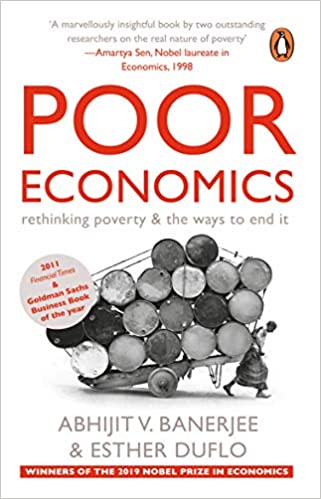“Poor Economics: A Radical Rethinking of the Way to Fight Global Poverty,” authored by MIT economics professors Abhijit V. Banerjee and Esther Duflo, earned the prestigious Financial Times and Goldman Sachs Business Book of the Year Award in 2011.
The book provides valuable insights into global poverty in the twenty-first century, highlighting that although the percentage of people in poverty has decreased, the overall number of impoverished individuals outside of China has risen significantly. The authors exclude China due to its unique economic growth and vast population, making it an exception in poverty trends. According to the World Bank’s poverty threshold of living on less than $1.25 a day, a staggering 1.4 billion people still live in poverty, posing a pressing problem for the world.
The authors explore prevailing theories on combating global poverty. Traditional economists advocated a “trickle-down” approach, relying on increased Gross Domestic Product (GDP) to benefit all economic levels. However, recent organizations, like the World Bank, support a “bottom-up” approach, emphasizing opportunities and security for all citizens.
To assess the effectiveness of these new approaches, the authors conducted 240 randomized control trials, analyzing the impact of incentives on poverty reduction and identifying factors behind successes and failures.
Regarding hunger, the authors challenge conventional aid methods, suggesting a focus on providing access to food for vulnerable groups like children and pregnant women.
In healthcare, they criticize costly moon-shot solutions for diseases and advocate for cost-effective preventative programs such as distribution, training, and immunizations.
Cash incentives emerge as a recurring theme in their analysis, with proposals to provide incentives to parents sending children to school or participating in preventative healthcare programs.
The authors also reveal surprising findings about family size, where reducing family size may not directly improve children’s lives. They highlight empowering women with contraception access as crucial in reducing family size in developing nations.
Despite the challenges in economic experiments, the authors present compelling arguments on optimizing global aid to uplift people’s lives.
ABOUT THE AUTHOR
Abhijit Banerjee is the Ford Foundation International Professor of Economics at MIT and the author of Poor Economics. He has been named as one of Foreign Policy magazine’s top 100 global thinkers and has served on the U.N. Secretary-General’s panel on the Post-2015 Development Agenda.
Esther Duflo is the Abdul Latif Jameel Professor of Poverty Alleviation and Development Economics at MIT and the author of Poor Economics. Duflo is a member of the American Academy of Arts and Science, and has received numerous academic honors and prizes including the Infosys Prize, the Dan David Prize, a John Bates Clark Medal, and a MacArthur “Genius Grant” Fellowship.



